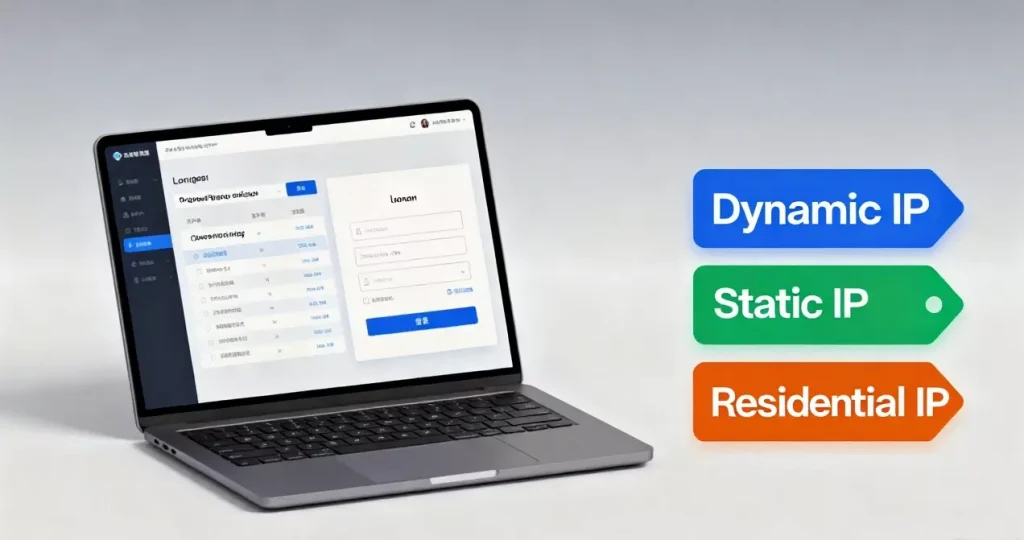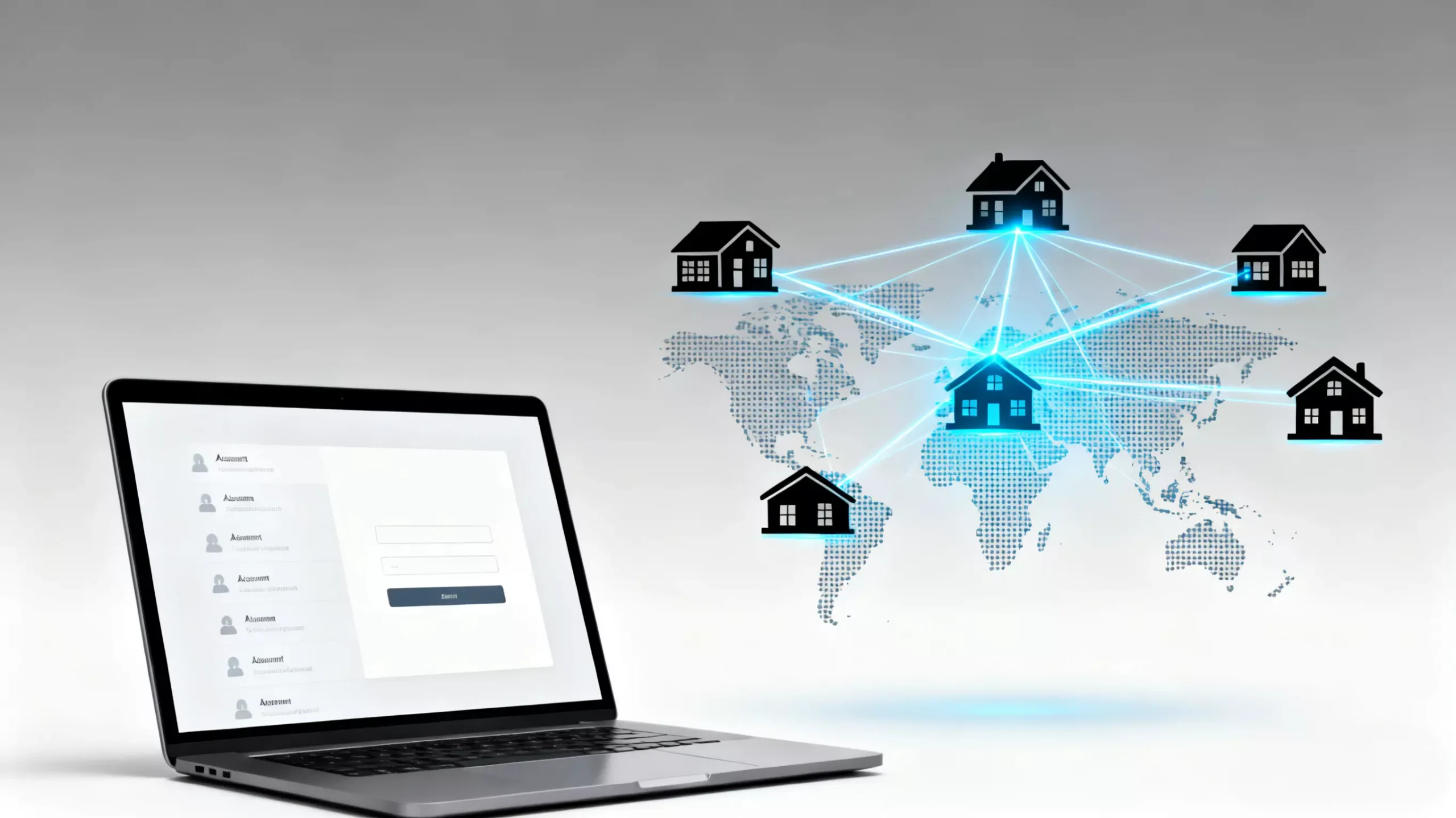Proxy IP in Cross-Border E-commerce: Applications and Selection Guide
In cross-border e-commerce operations, managing multiple accounts, accessing different regional platforms, and ensuring smooth payments and logistics are challenges every seller must face. Proper use of proxy IPs or high-quality proxy services not only improves access speed but also reduces the risk of account bans. Whether for independent store operations, cross-border ERP system management, or market data scraping, proxy networks have become an indispensable tool for global e-commerce.

Why Cross-Border E-commerce Needs Proxy IP
E-commerce platforms enforce strict monitoring of account security and access behavior. Frequent logins, batch operations, or location switching can easily trigger risk control, leading to account suspensions. Without using dedicated dynamic IPs or static IPs, sellers may encounter:
- Temporary account bans, disrupting order fulfillment
- Abnormalities in payment or fund collection
- Restrictions on data scraping or inventory management
Therefore, choosing high-quality proxy IPs and residential proxy IPs helps simulate real user behavior while protecting account security.
Dynamic IP vs. Static IP: Key Differences
When choosing IP types, sellers often weigh the pros and cons of dynamic and static residential IPs:
- Dynamic IP: Assigns a new IP address each session, making it suitable for multi-account operations, short-term scraping tasks, and time-limited marketing campaigns (e.g., flash sales). Dynamic IPs reduce repetitive operation risks and avoid being flagged as abnormal.
- Static IP / Fixed IP: Maintains the same address over time, ideal for independent store backend management, payment verification, and tasks requiring stable IP identity authentication. For large-scale, long-term data scraping, a single static IP is prone to detection and blocking. In such cases, a high-quality pool of dynamic residential proxy IPs is recommended to bypass anti-bot mechanisms.
In practice, sellers may combine dedicated dynamic IPs with static residential IPs depending on business needs.
How to Choose High-Quality Proxy IP
Price alone is not enough to evaluate proxy services. Consider the following criteria:
- IP Exclusivity Dedicated dynamic IPs are safer than shared proxies, avoiding risks caused by previous users’ activities.
- Geographic Match Select IPs that align with target markets to ensure smooth access and transactions. U.S. residential IPs and region-specific proxies (e.g., for Russian platforms) are common choices.
- IP Cleanliness Low-reputation IPs may be flagged as risky. Using clean IPs reduces the likelihood of account bans.
- Protocol Type Depending on requirements, choose HTTP/HTTPS or Socks5 proxies for browser sessions, scraping, or ERP system access.
Global proxy IP coverage also enables market access in multiple countries. For mobile operations, static mobile IPs ensure stability and better simulate real device behavior.
Applications of Proxy IP in Daily Cross-Border Operations
Multi-Account Operations
Operating multiple accounts is common in cross-border e-commerce. Logging into different accounts with dedicated dynamic IPs, combined with multi-browser tools where each session is bound to a unique IP, is one of the most effective ways to reduce account association risks. While this significantly lowers IP-related issues, keep in mind that platforms also analyze device fingerprints, behavior patterns, and payment details—so IP isolation alone is not sufficient.
Data Scraping and Market Analysis
Market data and competitive intelligence are vital for cross-border sellers. Using proxy IPs and global IP pools allows sellers to collect pricing, inventory, and logistics data without being blocked due to excessive requests from a single IP. Residential proxy IPs simulate real users, making scraping more natural and sustainable for long-term analysis.
Payment and Logistics Management
Cross-border payment systems demand high levels of access security. Using static residential IPs for payment platforms or ERP systems reduces the risk of triggering risk controls. At the same time, reliable proxy services improve access speed and data transfer stability, ensuring real-time updates of orders and logistics.
For ERP platforms, independent websites, and logistics systems, static IPs are particularly advantageous for long-term account stability and historical data accumulation, reducing the chances of abnormal operations.
Frequently Asked Questions
1. How can individuals start a cross-border e-commerce store?
- Choose a suitable platform → Register with a clean, stable local network → Configure payment methods → (For multi-account operations later) use dedicated proxy IPs for account isolation.
2. What does foreign trade involve?
- It includes product exports, order management, logistics coordination, and customer service for overseas buyers.
3. Where can proxy networks be found?
- By selecting high-quality, clean overseas proxy IPs that support multi-account operations, scraping, and secure payment access.
4. What’s the difference between dynamic IP and static IP use cases?
- Dynamic IPs: ideal for short-term scraping, multi-account logins, and temporary marketing campaigns.
- Static IPs: best for independent store management, ERP system access, payment, and logistics operations.
Conclusion
In cross-border e-commerce, proxy IPs are essential for securing accounts and ensuring stable business operations. By wisely choosing residential proxy IPs, dedicated dynamic IPs, and static residential IPs, sellers can reduce account bans, improve speed, and maintain operational stability. When combined with global IP coverage, multi-browser setups, and compliance-focused strategies, multi-account management in cross-border e-commerce becomes safer and more efficient.







